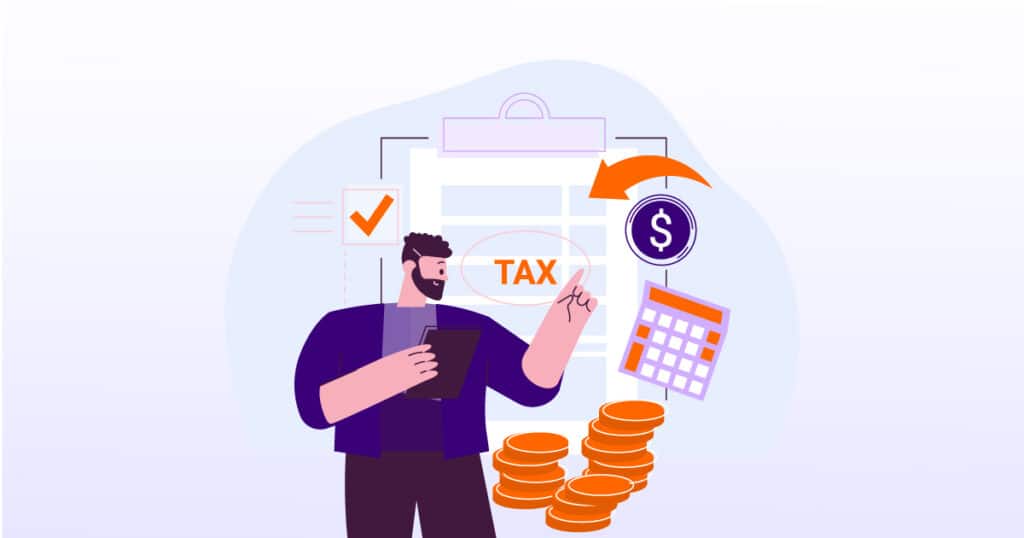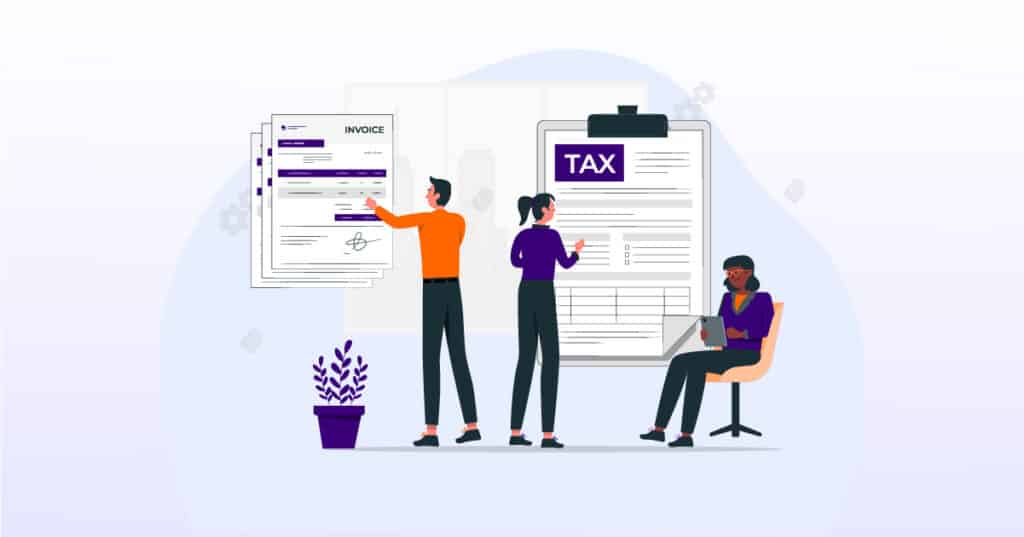Being in the restaurant business seems very easy because it involves dealing with customers all day and letting them have the best meal of their day. But this is not the truth, and the reality is far different from it.
There are a lot of things that are included when you are in the restaurant business. Among all the compliances that are necessary to follow, tax compliance holds a different importance.
No restaurant can operate without focusing on the taxes that it is liable to pay. Taxes are significant because they contribute to a fair share of public funds and support other essential services and infrastructure. Apart from focusing on tax regulations allows the restaurant to operate with transparency and trust while maintaining the work ethics.
If you are new to the restaurant business and need to learn about how tax compliance works, don’t worry because in the article, we will clarify all your doubts. In this read you will be able to understand different types of taxes and have an idea about all the deductions and credits in detail. We will also help you to understand different compliance tips and best practices so that there will be no problem throughout and you can operate conveniently. Without further ado, let’s explore!
Types of taxes restaurants need to consider:
Primarily, entering into the restaurant business requires a little understanding of the types of taxes restaurants need to focus on. This includes:
Income Taxes:
Income taxes are among the most significant taxes in the restaurant business as these are generated on the profits that have been earned by the restaurant in a particular financial year. For sole proprietorship, the income tax is calculated based on a personal income tax return, and the restaurant profits are reported as personal income.
On the other hand, if Limited Liability Companies and corporations are there, then these are separate legal entities where the income tax is calculated based on business entity profit. The taxes are different in both cases and will be charged accordingly.

Sales Taxes:
The second type is sales tax. These taxes are collected on the goods and services sold to customers in the particular financial year. Every state has different sales tax rates and regulations, so restaurants must stay informed about all the specific requirements according to their location so that they can comply with them. If a restaurant is not attentive toward sale taxes, they will be entitled to certain fines and penalties
Payroll Taxes:
Payroll taxes are those taxes that the company has paid on behalf of its employees. Whatever the pay is decided for all the employees the tax will be implemented over it. Under payroll taxes, there are different categories, including income tax withholdings, social security tax, Medicare tax, and state income taxes. Paying the payroll taxes effective management is required because it must be calculated accurately so that there will be nothing that can go against tax compliance.

Understanding deductions and credits:
Understanding all the deductions and credits is necessary because it allows restaurants to understand their taxable income, and it also turns out to be helpful in lowering overall tax liability:
Common deductions for restaurants:
When we specifically focus on common deductions for restaurants, it includes a wide range of expenses that are required for operating the business. Several parameters are included in it, like the cost associated with the ingredients, equipment purchases, and other utilities like electricity, gas, water, rent, or mortgage payments. Apart from it, employee wages and benefits, marketing, and Advertising expenses are also part of a common deduction that takes place inside the restaurant.
Restaurants must consider specific strategies to maximize deductions, including efficiently keeping a detailed record of all expenses. For that, restaurants can utilize accounting software to categorize expenses accurately and take advantage of tax-saving opportunities like depreciation deductions for equipment and property.
Tax credits available to restaurants:
Different tax credits are helpful for restaurants to reduce their tax liability and increase their bottom line. The three common tax credits available to restaurants include:
1) Research and development ( R&D) Tax Credit:
The research and development tax credit is designed to allow businesses to have sufficient funds available to invest in Innovation and development activities. To be qualified for the research and development tax credit, restaurants need to engage in certain activities like developing New recipes and implementing new cooking techniques or improving food safety processes. The Eligible expenses under the category include wages for employees who are involved in research and development activities and other overhead costs. This credit is helpful in improving significant changes for restaurants, and they can take steps toward innovation
2) Work Opportunity Tax Credit (WOTC):
The work opportunity tax credit is a federal tax credit mainly available to employers who actively hire individuals from targeted groups, such as government assistance recipients or other veterans. This is primarily to maintain equality among individuals looking for employment. Restaurants can qualify for this credit by hiring individuals from the targeted groups and fulfilling the criteria as outlined by the IRS. The amount that will be sanctioned for credit depends on various factors, including the target group to which the employee belongs and the number of hours the employee is working.
3) Energy-Efficient Appliance Credit:
Lastly, restaurants that actively engage in and invest in energy-efficient equipment and appliances will be eligible for energy-efficient appliance credit. This is especially true for restaurants that are purchasing qualifying energy-efficient commercial kitchen equipment like refrigerators, dishwashers, freezers, or Ovens. The credit amount will be sanctioned based on the equipment’s Energy Efficiency and can provide a dollar-to-dollar reduction in tax liability.

Compliance Tips and Best Practices:
For all restaurants, it is necessary to Fulfil the tax regulations to avoid penalties and maintain financial health. For that, some essential tips that can be considered include:
Record-keeping practices:
The primary practice that restaurants can consider includes maintaining accurate records. Accurate record-keeping helps them to track their expenses and income, and they can have an eye on all the deductions accurately. It is not only helpful in ensuring compliance with tax laws but also helps restaurants make informed decisions to monitor the cash flow and prepare financial statements. There are different kinds of accounting software available that allow restaurants to streamline the record-keeping process, and these are helpful in automating different tasks inside the restaurant. The significant benefits that have been seen with record-keeping tools include expense tracking, invoicing, and financial reporting, along with negligible errors.
Tax Filing Deadlines:
How can we forget that it is necessary to keep up with tax filing deadlines? Restaurants need to be sure about various tax returns that they need to file throughout the year, including income tax returns, sales tax returns, and payroll tax returns. To ensure timely compliance with tax filing that lines, restaurants need to maintain a calendar of important dates and deadlines so that they will get reminders about upcoming filings and allocate sufficient time and resources for trap preparation.
Working with Tax Professionals:
Lastly, restaurants need to make sure that they have tax professionals available who are from the same industry. Having certified public accounts or tax attorneys will help restaurants keep up with all the tax laws and regulations. In return, they will help them maximize tax reductions and credits by minimizing tax liabilities. Various tips are necessary to keep in mind while choosing the right tax professional, and these include:
- Experience the professionals have in the same industry.
- Understanding of all the compliance.
- Check on their potential and credentials.
- Keep an eye on their record to date.
- Research online about the reviews.
Strategies for Tax Planning and Minimization:
Strategies are necessary to keep in mind while planning for back and minimization. This includes:
Forecasting and budgeting:
Tax Planning plays a major role in restaurants, and restaurants need to utilize historical financial data and industry Benchmarks to forecast future tax obligations accurately. By estimating income and tax reductions throughout the year, restaurants can develop realistic budgets and cash flow projections. By implementing different tax-saving strategies, like accelerating deductions and maximizing eligible tax credits, they can further reduce tax liabilities and improve overall financial performance.

Entity structure optimization:
Restaurants must also select the appropriate business structure to maximize tax benefits and minimize liabilities. For instance, by choosing sole proprietorships and pass-through entities like partnerships and S-corporations, restaurants will be able to enjoy a tax advantage like pass-through taxation, where business income is reported on individual tax returns. Restaurants need to be sure about the existing structure so that they can restructure carefully and execute different practices that can ensure compliance with legal requirements and minimize potential consequences.
Conclusion
In conclusion, in this article, we have explored all the essential tax considerations for the restaurant business and highlighted all the key strategies that are helpful in Planning and minimization. We have discussed all the tax credits that are available to restaurants and other tips that can help restaurants to minimize their taxes. As we have already discussed, Restaurants need to have a professional available on their side who can help them, and for that, you can reach out to Paperchase Hospitality Accountant. With expertise in hospitality accounting and Tax services, the Accountants will help you to achieve your financial goals that ensure compliance with all the tax laws and regulations. Be sure to take a step towards financial success by contacting Paperchase Hospitality Accountants today!
FAQ:
What is the difference between sales tax and use tax?
Sale taxes are imposed by state and local governments on the sale of tangible personal property. On the other hand, use taxes are complementary taxes imposed on the use, storage, or consumption of taxable items purchased for use in a state where sales tax has not been paid.
Can restaurant owners deduct the cost of meals provided to employees?
Yes! Restaurant owners consider meals provided to employees a business expense. However, this deduction can only be imposed with following the limitations and conditions imposed by the IRS. The following types of costs are 50-100% deductible. Specific criteria need to be followed for them. Additionally, to make this expense eligible for deduction, the meals must be provided to the employees on the restaurant premises.
Are tips considered taxable income for restaurant employees?
According to law, tips received by restaurant employees are considered taxable income and must be reported to the IRS. Employers are also required to report employees’ tips to the IRS through various forms that they have issued.
What are the consequences of failing to pay restaurant taxes on time?
If a restaurant fields restaurant taxes on time, it will lead to specific types of obligations and part of non-compliance. Failure to pay taxes on time results in penalties, interest charges, and legal consequences as well. This can have a toll on the reputation of the restaurant as well, and in some cases, until and unless the restaurant pays the taxes they are supposed to operate.
Read more























